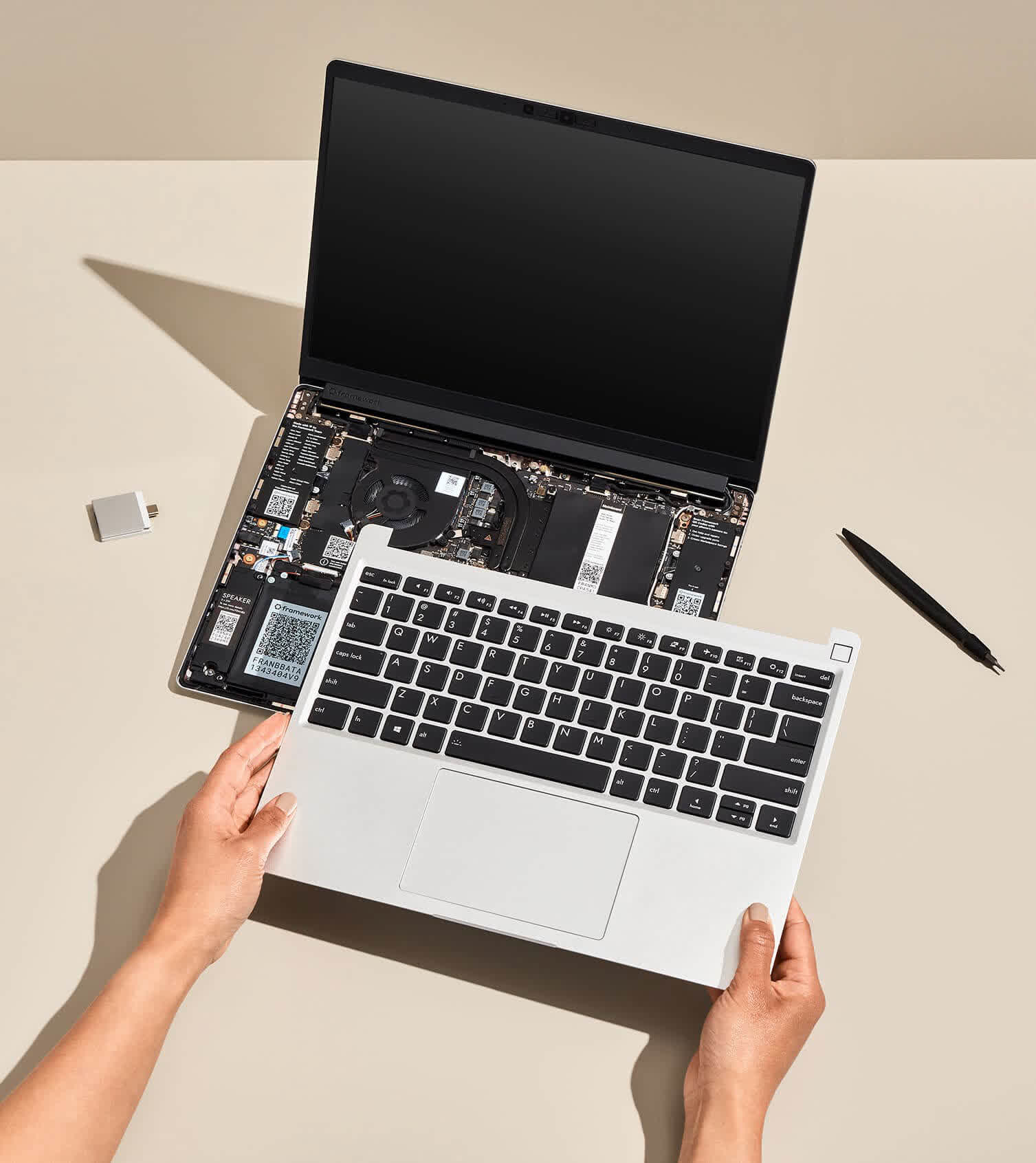Why it matters: The laptop makers at Framework are at it again, pushing the limits of what’s possible with their modular and repairable machines. This time, they’ve partnered with DeepComputing to launch a new RISC-V-based mainboard. If it takes off, it could help jumpstart software development for this instruction set on laptop-sized hardware.
For the uninitiated, RISC-V is an open-source, royalty-free instruction set that anyone can implement without paying licensing fees. It’s different from the x86 chips from Intel and AMD that power most laptops and desktops today, which are closed off behind a web of patents and cross-licensing deals.
RISC-V has been making waves in low-power chips like microcontrollers and embedded systems, but this new board from Framework and DeepComputing marks one of the first attempts to bring it to consumer laptops and desktops.

The RISC-V Mainboard rocks a quad-core 1.5GHz StarFive JH7110 processor based on SiFive’s U74 CPU design. This is supported by 8GB of soldered LPDDR4 RAM and 64GB of eMMC storage, which isn’t user-upgradeable like Framework’s other x86 mainboards.
Since this is a different instruction set, software support is fairly limited. For now, the board officially only runs Ubuntu 24.04 LTS or Fedora 41, with all technical support coming courtesy of the DeepComputing team. Other major operating systems haven’t jumped on the RISC-V bandwagon quite yet.
But that’s kind of the point: this mainboard costs just $199 and is designed for developers who want to get their hands dirty with RISC-V to help expand its software ecosystem. As Framework’s CEO Nirav Patel puts it, the goal is to enable developers, tinkerers, and hobbyists to start testing and creating on RISC-V.

Being a Framework product, the RISC-V board is meant to slot right into the company’s modular Laptop 13 chassis. You can pick up a boardless base with just the screen, a 55Wh battery, speakers, and keyboard for $399 if you’d like to turn this into a proper laptop.
That said, the RISC-V Mainboard is certainly not meant to be a consumer product – at least not yet. The limited performance and lack of user-upgradable RAM or storage make that clear. But for those eager to push RISC-V development further, it sounds like an excellent proposition.
Source link